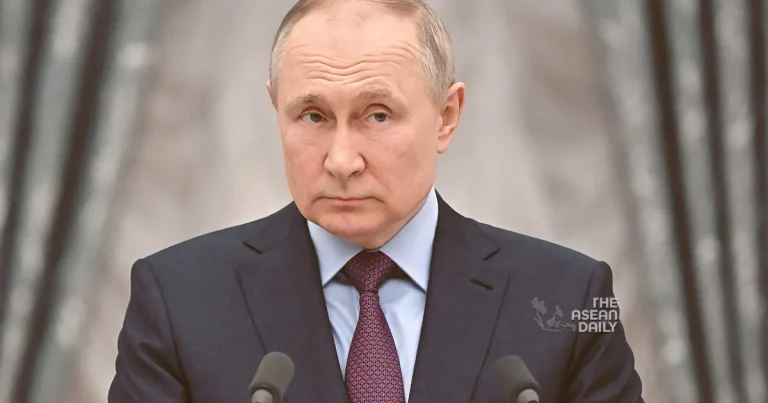17-6-2024 (HANOI) In a move that has drawn sharp criticism from the United States, Russian President Vladimir Putin is set to embark on a high-profile visit to Hanoi this week, underscoring Communist-ruled Vietnam’s unwavering loyalty to its longstanding ally amid the ongoing conflict in Ukraine. The visit, scheduled for Wednesday and Thursday, comes on the heels of Hanoi’s notable absence from a Ukraine peace summit in Switzerland last weekend, while simultaneously sending its deputy foreign minister to a BRICS meeting in Russia earlier last week.
According to multiple officials, Putin, who was sworn in for an unprecedented fifth term just over a month ago, is expected to meet with Vietnam’s new president, To Lam, and other key leaders during his two-day stay in the Vietnamese capital. The visit is seen as a significant diplomatic gesture, highlighting the enduring ties between the two nations despite the global backlash against Russia’s actions in Ukraine.
The United States, which upgraded its relations with Hanoi last year and remains Vietnam’s top trading partner, has reacted harshly to the forthcoming visit. A spokesperson for the U.S. embassy in Hanoi expressed strong disapproval, stating, “No country should give Putin a platform to promote his war of aggression and otherwise allow him to normalize his atrocities.” The spokesperson further cautioned that if Putin is able to travel freely, it could potentially normalize Russia’s “blatant violations of international law,” referring to the invasion of Ukraine launched in February 2022.
Vietnam’s foreign ministry has remained tight-lipped on the matter, declining to provide any comment regarding the controversial visit.
The situation is further complicated by the International Criminal Court’s (ICC) issuance of an arrest warrant for Putin in March 2023 over alleged war crimes in Ukraine. While neither Vietnam, Russia, nor the United States are members of the ICC, the existence of the warrant underscores the gravity of the allegations against the Russian leader.
The European Union, another key economic partner for Vietnam, has also expressed dissatisfaction over Hanoi’s decision to delay a meeting with the EU envoy on Russian sanctions, a move officials link to preparations for Putin’s visit.
From Hanoi’s perspective, the visit is viewed as a demonstration of Vietnam’s “balanced foreign policy that does not favor any of the major powers,” according to Ian Storey, a senior fellow at the Singapore-based ISEAS-Yusof Ishak Institute. This stance comes after the country recently hosted both U.S. President Joe Biden and Chinese President Xi Jinping in recent months.
While the official agenda for Putin’s visit remains fluid, two officials familiar with the matter have indicated that agreements in sectors such as trade, investment, technology, and education are expected to be announced, although the specifics are subject to change.
However, the more sensitive discussions between Putin and Vietnamese leaders are likely to revolve around issues of strategic importance, including arms sales, energy cooperation, and financial transactions. Russia has historically been Vietnam’s top supplier of arms, and Russian companies operate in Vietnamese gas and oil fields in areas of the South China Sea disputed by China. Additionally, the two countries have grappled with challenges in conducting transactions due to U.S. sanctions on Russian banks, according to one of the officials.
Carl Thayer, a senior expert on Vietnam security at the Australian Defence Force Academy in Canberra, suggests that “the main issues relate to shoring up economic and commercial ties, including arms sales.” He further anticipates that Putin and Vietnamese leaders will likely agree to explore rouble-dong currency transactions via the banking system to facilitate payments for goods and services.




